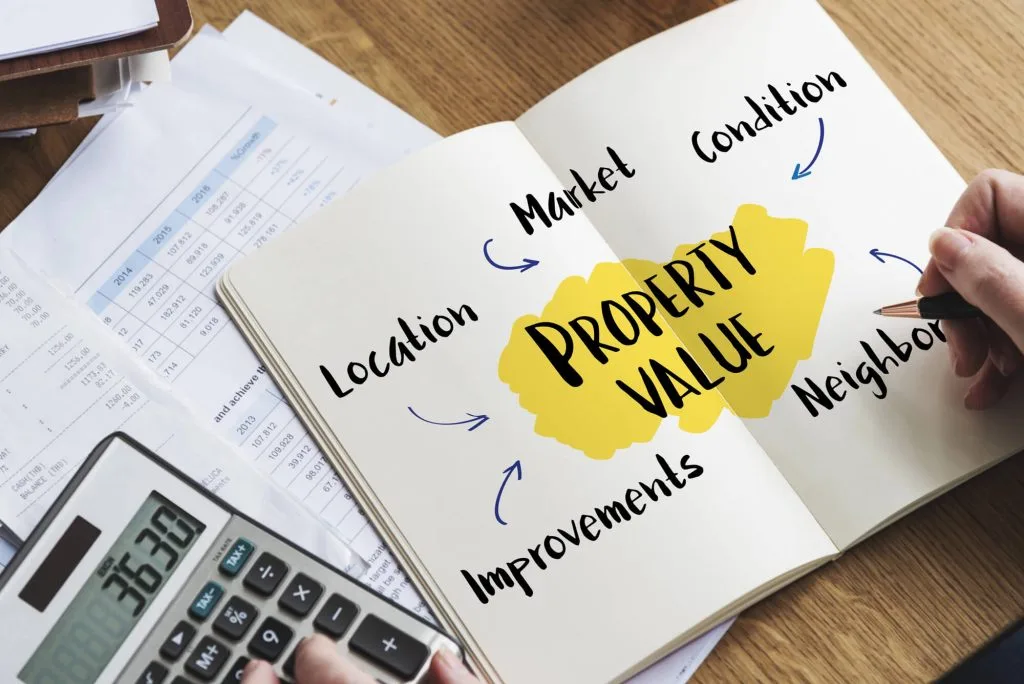Whether you’re selling a retail space, leasing out an office, or planning to buy a commercial building, commercial property valuation plays a vital role in helping you make smart, informed decisions. This guide breaks down what it is, why it matters, how it works, and why choosing the right experts can make all the difference.
What is Commercial Property Valuation?
Commercial property valuation (also known as a commercial property appraisal) is the process of determining the current worth of a commercial building, shop, office, or industrial site. It involves a detailed assessment of location, size, building condition, rental potential, and broader market trends.
Valuation is essential for a wide range of situations:
- Buying or selling commercial property
- Negotiating leases or rent reviews
- Taxation and accounting compliance
- Refinancing and securing loans
- Legal proceedings or family law matters
- Insurance purposes
- SMSF compliance and asset management
In some cases, particularly when the government is acquiring property for public use, the valuation also forms the basis of a compensation offer, as governed by the Land Acquisition (Just Terms Compensation) Act 1991. This legislation requires valuers to consider:
- Market value
- Special value to the owner
- Relocation costs or disadvantages
- Severance impacts
- Changes in value to adjoining land
Whether you’re transacting privately or navigating a compulsory acquisition, commercial property appraisal ensures decisions are based on fair, evidence-backed values.


Why It’s Important to Know Your Property’s Value
Having an accurate, independent understanding of your commercial property value helps you make informed business and investment decisions. Whether you’re an owner, tenant, investor, or developer, a reliable valuation is crucial in situations such as:
- Buying or selling: Know if you’re paying or receiving a fair price
- Leasing: Avoid undercharging or overpaying rent
- Refinancing or insurance: Get appropriate coverage and lending terms
- Renovating: Focus improvements where they’ll add value
- Retirement or succession planning: Understand asset value for future planning
- Legal proceedings: Support decisions in cases like family law or SMSF compliance
A detailed business property valuation can also provide insights into how your property is performing compared to others in the market. This is useful for everything from budgeting to strategic planning.
How Do Valuers Work It Out?
So, how do valuers actually determine what your property is worth? A qualified expert conducting a commercial real estate appraisal will use a combination of local market insight and trusted valuation methods. They typically assess:
- Location: Is the property in a high-demand commercial area?
- Type and condition: Office, retail, or industrial? New build or older asset?
- Size and layout: Usable floor space, parking, storage, and configuration
- Rental income: What are current or projected rents?
- Market trends: How do comparable properties perform in today’s market?
They also apply trusted valuation methods such as direct comparison, cost-based analysis, or income capitalisation; all part of a thorough commercial building valuation process.
To ensure accuracy and legal standing, valuers must be professionally accredited. Acceptable qualifications include:
- Full membership of the Australian Property Institute (API)
- Chartered Valuer with the Royal Institution of Chartered Surveyors (RICS)
- Full member of the Australian Valuers Institute


How Much Does Commercial Property Valuation Cost?
Valuation fees vary depending on the:
- Size and complexity of the property
- Type of report needed (for court, banks, or general advice)
- Urgency and turnaround time
On average, you can expect to pay upwards of $1,500 +gst.
Examples:
- A small strata office or retail suite: ~$1,500
- A large industrial or mixed-use site: $2,500–$3,500+
Valuers may charge a fixed fee or provide a custom quote based on your specific needs. At MCSSA, you’ll always get clear, upfront pricing, so there are no surprises down the line.
What Types of Properties Can Be Valued?
A wide range of commercial properties can be professionally valued, including:
- Retail spaces: From small shop fronts to large shopping centres
- Office buildings: Single units to entire floors or towers
- Industrial properties: Warehouses, factories, and logistics hubs
- Vacant land: Zoned for commercial or mixed-use development
- Mixed-use developments: Buildings that combine commercial, office, or residential uses
Each type comes with unique considerations: for example, lease terms for office buildings, or zoning restrictions for land parcels.
As Sydney-based specialists, MCSSA brings valuable local insight to each retail property valuation, commercial land valuation, and business property appraisal they conduct.
FAQs (Answering Common Questions)
How do I calculate commercial property value?
There’s a formula involving rental income, expenses, and something called a “capitalisation rate.” But this can get complex, so it’s best to ask a professional valuer to ensure accuracy.
How much does a valuation cost?
It depends on your property’s size and purpose. MCSSA offers fair, tailored quotes that reflect the work involved.
How do appraisers figure it out?
They assess the property, research market data, and compare similar properties recently sold or leased in the area.
How can I find past sales prices for comparison?
Property data websites can give you a rough idea, but valuers have access to verified, up-to-date sales records that aren’t always publicly available.


What to Look for in a Commercial Valuer (and How MCSSA Can Help)
Choosing the right valuer ensures you get a report that stands up in court, satisfies your lender, or helps guide your investment decisions. Here’s what to look for:
- Accreditation & Experience: Fully qualified valuers with expertise in your property type
- Independence: Unbiased advice, free from conflict of interest
- Comprehensive Reports: Clear, well-researched documentation suitable for legal, financial, or investment purposes
- Local Knowledge: Understanding of market trends, council rules, and regional demand
At MCSSA, you’ll get all of the above and more. With decades of experience serving Sydney and the surrounding areas, their team delivers reliable commercial appraisal services backed by a commitment to clarity, accuracy, and care.
Final Thoughts
Whether you’re buying, selling, leasing, or planning for the future, understanding the true value of a commercial property is a crucial step. It helps you make confident financial decisions, avoid costly mistakes, and ensure you’re aligned with market expectations.
From small retail shops to large office spaces, an accurate valuation offers clarity in a fast-moving market and supports long-term planning. If you’re considering a valuation, working with qualified professionals can provide insights tailored to your specific needs and property type.



Social